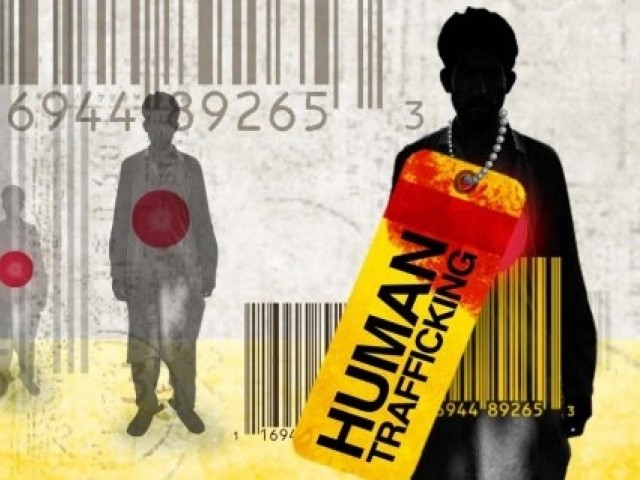
by: Judy Hale Reed, Staff Writer
The first two posts of this series laid out the problem of human trafficking in general and in Pennsylvania, and then explored Pennsylvania laws. This post will focus on what we can all do to help stop human trafficking, or modern slavery, looking in-turn at awareness and reporting, our own consumption, and advocacy and capacity building.
First, awareness and reporting. Be aware that human trafficking can happen anywhere. If you see a suspicious situation in a hotel, neighborhood, business, or street corner, call the National Human Trafficking Resource Hotline at 1-888-878-7888. The Polaris Project, a non-governmental organization named after the North Star, operates this hotline with funding from the U.S. Department of Health and Human Services. They collect data, provide trainings, and provide support for improving state and federal anti-trafficking laws that is rooted in their direct services to trafficking victims in their Washington, D.C. shelter. Their website provides training modules for over 20 different professions, from educators and health case providers to police and task forces. While being aware and calling for assistance is very good, do not directly intervene as you could cause serious danger to yourself and the victims. You should do no harm. Always call 911 or the local police in an emergency.
Second, educate yourself about your own consumption. If you go back in the supply chain to manufacturing, and further back to the production and processing of raw materials, many people are exploited, some to the extent that their conditions meet international definitions for slavery. Lauren Bellows, former President of the American Bar Association, recommends that everyone take the quiz, http://slaveryfootprint.org/, to find out how many slaves work for you. It is chilling, but she urges you to not turn away. Consider how much “stuff” you need, and be aware of what types of products you purchase. Educate yourself to buy less or buy more ethically produced and sourced goods and services, from bananas to banking services. The Slavery Footprint website has links to help educate consumers, including you. At the policy level, the U.N., the American Bar Association, and the U.S. Department of Labor, among others, are working to promote effective standards and compliance for the triple bottom line of profits, people, and planet.
Third, we can work and volunteer to support anti-trafficking efforts. Nancy Heilman, Allegheny County Bar Association President, remarked that “the late July 2013 FBI Operation Cross Country triggered my interest in becoming more aware of the crime of human trafficking, aided by the Human Trafficking Awareness Training module on the Homeland Security website.” She decided to take action. “At the invitation of United States Attorney David Hickton and the FBI, Executive Director David Blaner and I participated in a meeting of the Western Pennsylvania Anti-Human Trafficking Coalition.” This was the beginning of her professional exploration of how to most strategically combat human trafficking. “The Allegheny Bar Association has not yet proposed specific actions, but is pursuing an immediate goal to increase our awareness and educate our members and the public about the ubiquitous nature of this serious crime in our Western Pennsylvania urban, suburban and rural communities. We anticipate future initiatives among the members of the bar, in coordination with the Allegheny County Bar Foundation, to provide resources to combat this abominable deprivation of civil rights.”
Local legal organizations that assist human trafficking victims:
- Neighborhood Legal Services [http://www.nlsa.us/]
- Community Justice Project [http://www.communityjusticeproject.org/]
- Jewish Family and Children’s Services [http://www.jfcspgh.org/immigrants–refugees.aspx]
Other key anti-trafficking organizations in Pittsburgh:
- Western Pennsylvania Anti-Human Trafficking Coalition and their Annual Open House [http://www.swpaahtc.org/] on February 10, 2014
- Project to End Human Trafficking [http://www.endhumantrafficking.org/]
Many barriers, including isolation, fear, and lack of self-identification discussed in the previous post in this series, make identification more difficult. “Many victims of trafficking who are not U.S. citizens fear coming forward. They may have violated the terms of a work visa by fleeing their employer, and so fear that coming forward will cause them to be deported. Or they are afraid that fleeing will cause them to be arrested because their employer has told them that they are committing a crime by leaving,” reports Evalynn Welling, Staff Attorney with the Community Justice Project in Pittsburgh. “Others feel they have few options because they have been convicted of crimes which they were forced to commit by their traffickers. These trafficking victims need to have a way to wipe out their criminal convictions, such as the process for vacating the prostitution-related convictions of trafficking victims which has been enacted by the state of New York.”
To ensure that more victims are identified, we can advocate for stronger laws to support identification and protection of victims, and more training for our law enforcement and our prosecutors to support them in the fight against human trafficking. For example, we could advocate for better implementation of the new Pennsylvania law requiring the National Trafficking Resource Hotline to be posted at establishments where victims might see the number and be able to get safe, effective assistance.
By taking this knowledge into our lives, our consumption habits, our social circles, and our workplaces, we can help to make our world a safer place.
This blog post is the third of a three-part series on human trafficking in Pennsylvania.
Ms. Hale Reed is a 3L who has worked on anti-trafficking efforts at the community, state, and national level in Washington state, Pennsylvania, and the Republic of Moldova. She is currently a legal intern in the U.S. Attorney’s Office in Pittsburgh.